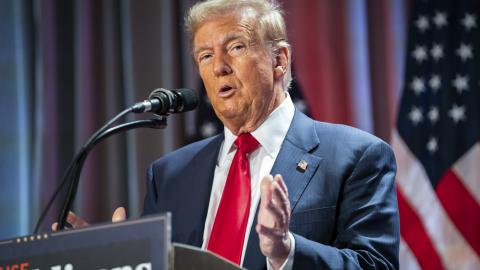It’s been another tough year for our European friends. As mobs stormed through the streets of Amsterdam baying for Jewish blood in one of the most shocking European pogroms since the Nazi era, French statisticians reported that 2023 saw the fewest live births in France in any year since World War II. Economies have stagnated across the eurozone, India is poised to leapfrog Germany and become the world’s third-largest economy, China’s surging exports threaten key European industries, and Europe’s struggling tech companies are falling further behind their American, Chinese, Indian and Israeli competitors.
The Continent’s security situation is equally dire. As North Korean forces gear up for battle in Ukraine, the fragile Western consensus over Ukraine policy has collapsed. German Chancellor Olaf Scholz, presumably fishing for votes in the coming election, broke ranks with his European colleagues to make a phone call to Russian President Vladimir Putin. The response wasn’t propitious. Since the chancellor and the president ended their chat, Russia has dramatically escalated its missile attacks on Ukraine. Isolating Germany further, on the other side of the Atlantic the Biden administration relaxed restrictions on Ukraine’s use of long-range missiles to attack targets deep inside Russia.
Read the full article in The Wall Street Journal.
Enjoyed this article? Subscribe to Hudson’s newsletters to stay up to date with our latest content.


















